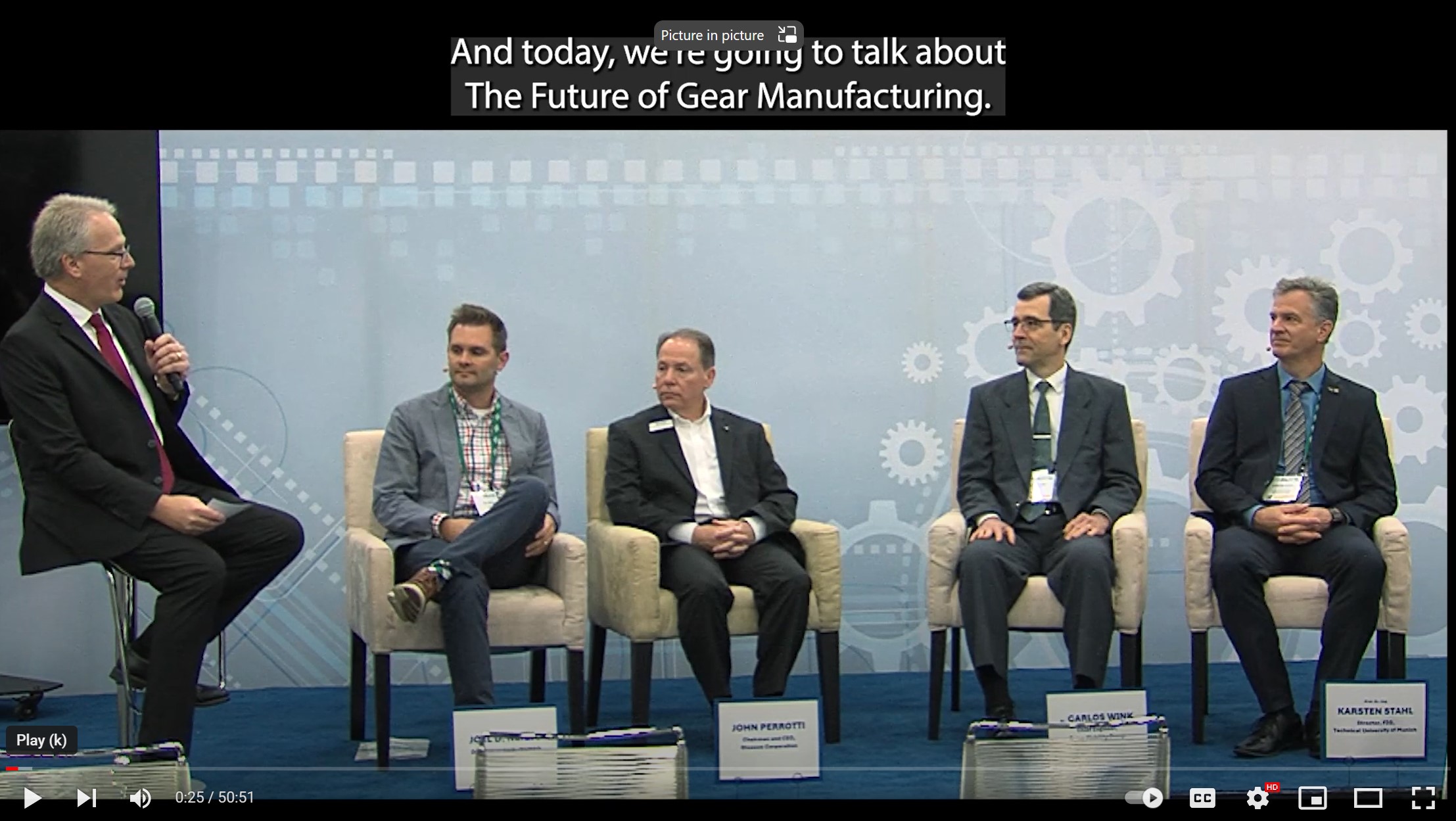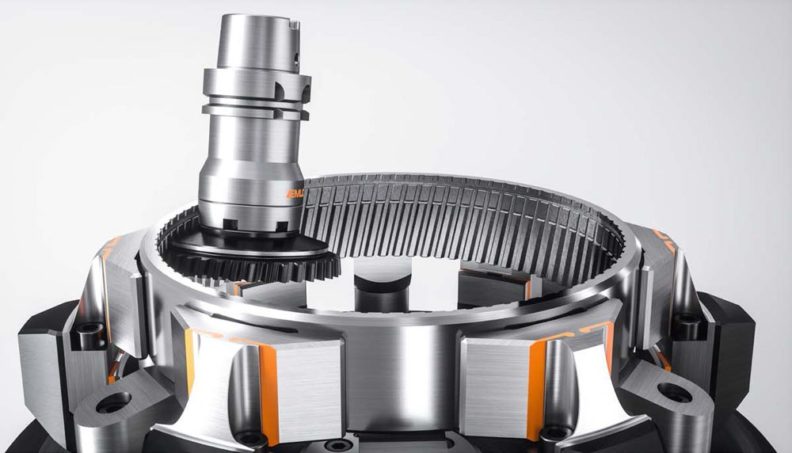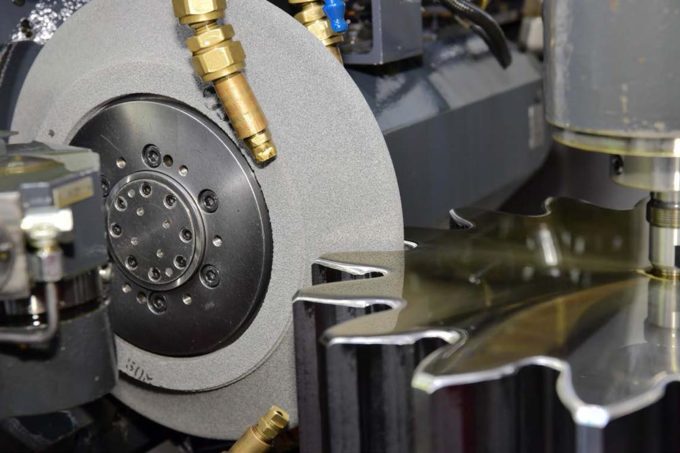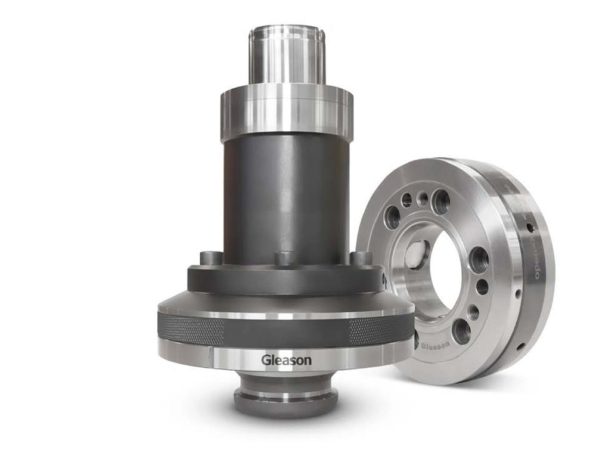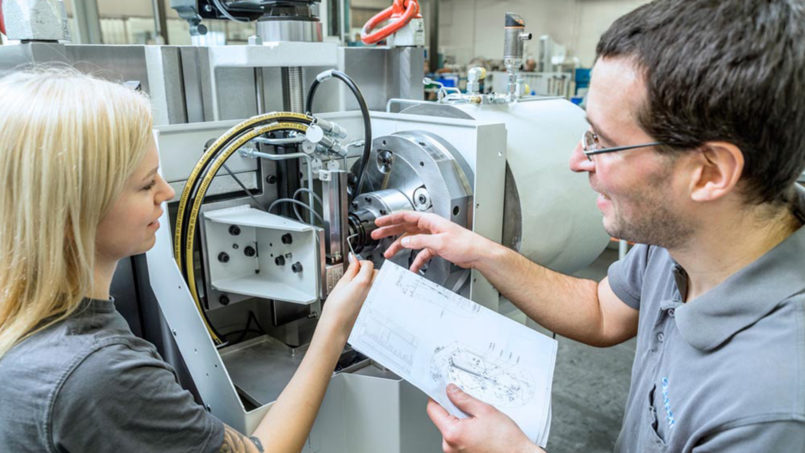QuesTek Awards Production Licenses for Gear Alloys
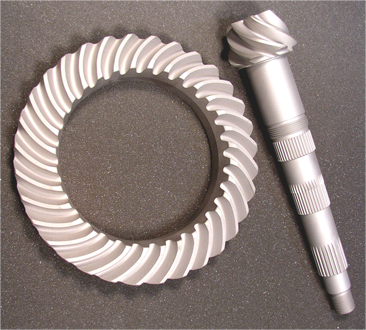
Latrobe Specialty Steel Company was awarded licenses to produce and sell Ferrium C61 and C64 alloys from QuesTek Innovations LLC. Both high-quality, carburizing steels were developed specifically for gear applications as Phase I and Phase II Small Business Technology Transfer (STTR) projects awarded by the U.S. Navy Naval Air Systems Command (NAVAIR).
Ferrium C61 and C64 exhibit high core strength, high fatigue strength, high temperature resistance and high surface (case) hardenability. These licenses are the first QuesTek has granted to commercially produce and market the two alloys using QuesTek's compositions, processing knowledge and intellectual property. Terms of the agreement were not disclosed.
"We're pleased to award these licenses to Latrobe," says Charlie Kuehmann, president and CEO of QuesTek. "These licenses build upon our earlier license to Latrobe of Ferrium S53, our ultra-high strength, corrosion resistant steel used for aircraft landing gear and other applications. We look forward to working further with Latrobe, their customers and design engineers worldwide to identify valuable product applications of Ferrium C61, C64 and S53."
"We sell these premium-quality, high-hardness carburizing steels to customers worldwide to boost the performance and durability of their products," comments Scott A. Balliet, Latrobe Specialty Steel director of technology and quality. "These alloys are produced in our state-of-the-art vacuum melting (VIM) and vacuum re-melting (VAR) facilities, which include the recently completed VIM and VAR expansion to our Latrobe, PA facility. Working with QuesTek, we accelerate introducing premium alloys to customers for vital defense and commercial applications."
The Ferrium C61 design objective was to develop a high performance, secondary-hardening gear and bearing steel with surface properties similar to conventional gear steels, like AISI 9310 and EC36C; however, the goal was for an ultra high-strength core and fracture toughness. While Ferrium C61 can reach case hardness of 60-62 Rockwell "C" hardness (HRC), Ferrium C64 achieves 62-64 HRC.
The Ferrium alloys have 900-950 degrees Fahrenheit tempering temperature, which is an increase in thermal stability of 400-600 degrees Fahrenheit from that of conventional gear steels. This quality results in improved oil-out survivability. They were designed to allow gas quenching and use conventional low-pressure carburization technology to minimize distortion, lower manufacturing times and provide "dial-in" carburized case hardness profiles.
Typical applications include demanding power transmission shaft and gear applications in aerospace; energy; and racing, off-road and mission-critical vehicles; also, other industries where weight savings, compactness, high temperature resistance and high surface fatigue resistance are important, according to QuesTek's press release.
"Certain product applications benefit from the harder surface that C64 offers over C61, when for example the product design life is limited by contact surface fatigue," explains Rich Kooy, director of sales and marketing for QuesTek. "Other product applications may be limited by the strength and fracture toughness of the core material, where the increased ultimate tensile strength and fracture toughness of C61 over C64 will make it the superior choice.
"These differences may seem small, but the fact that NAVAIR is funding an STTR program for QuesTek to design and develop Ferrium C64 for Navy rotorcraft applications illustrates that they are not."
QuesTek, originally a research arm of Northwestern University, became an independent company separate from the university in 1997. The company recently announced a Phase II Small Business Innovation Research (SBIR) project from the U.S. Army, and three Phase I SBIR projects were awarded by the U.S. Department of Energy and the Office of Naval Research.
